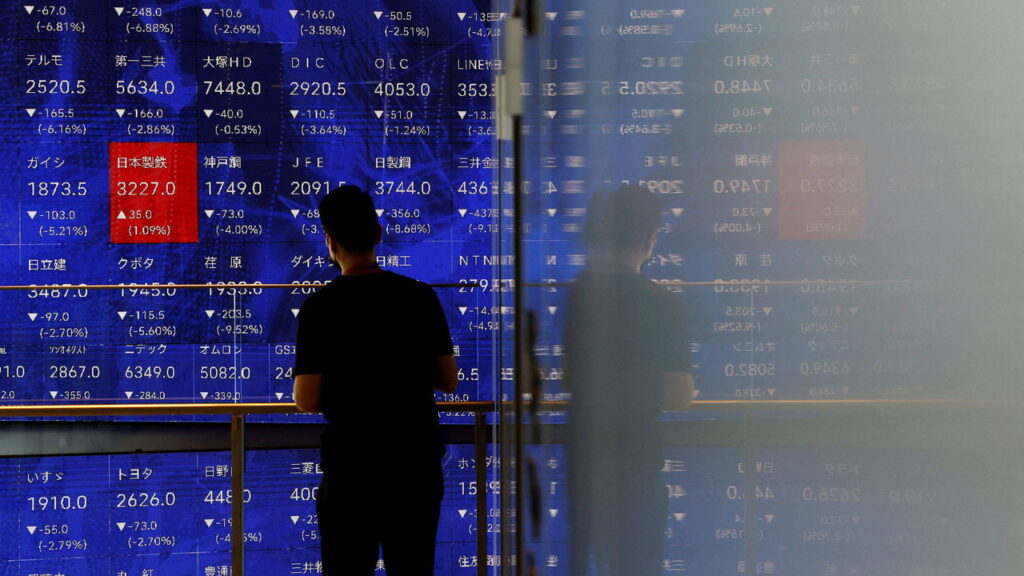As fears of a recession in the United States begin to spread, stock markets worldwide are feeling the impact. However, no market has been hit as hard as Japan’s. On August 5th, Japan’s Topix index saw a massive drop of 12%, marking its worst performance since 1987. In comparison, other markets such as America, Britain, and Europe experienced more modest falls of 2-3%. The Topix index is now nearly a quarter below its recent peak, which was reached just a month ago.
In addition to the stock market turmoil, the Japanese yen has also been experiencing significant fluctuations. The currency has strengthened by 13% in less than a month, rebounding from its weakest point in 37 years. These sudden and drastic changes in both the stock market and currency values have far-reaching implications beyond just Japanese investors and firms. Given Japan’s significant financial influence, these events could potentially create further volatility in already jittery global markets.
One key factor contributing to Japan’s current economic struggles is its heavy dependence on exports. The country’s economy is heavily reliant on selling goods and services to foreign markets, particularly to the United States and China. With both countries experiencing economic uncertainty and potential downturns, Japan’s export-driven economy is feeling the pressure. A weakening global demand for Japanese products is a major concern for Japanese companies, as it directly impacts their profits and financial stability.
Another issue facing Japan is its rapidly aging population. With a shrinking workforce and an increasing number of retirees, Japan is struggling to maintain economic growth and competitiveness. The burden of supporting a growing number of elderly citizens is placing a strain on the country’s social welfare system and resources. This demographic challenge poses a long-term threat to Japan’s economic health and stability.
The recent volatility in Japan’s financial markets has also raised concerns about the country’s ability to navigate through uncertain times. Japan’s government debt is one of the highest in the world, standing at over 200% of its GDP. With a sluggish economy and limited room for fiscal stimulus, Japan may struggle to address its economic challenges effectively. The Bank of Japan’s monetary policy options are also limited, as interest rates are already near zero.
Despite these challenges, Japan has shown resilience in the face of economic adversity in the past. The country has a history of innovation and adaptability, which has enabled it to overcome various obstacles and emerge stronger. Japanese companies are known for their technological advancements and global competitiveness, which could provide a much-needed boost to the economy in the long run.
In conclusion, Japan’s current economic woes are a reflection of the broader global economic uncertainty. With fears of a recession looming and stock markets in turmoil, Japan’s economy faces significant challenges. However, with its history of resilience and innovation, Japan has the potential to overcome these obstacles and emerge stronger. It remains to be seen how Japan will navigate through these turbulent times and steer its economy towards stability and growth.



